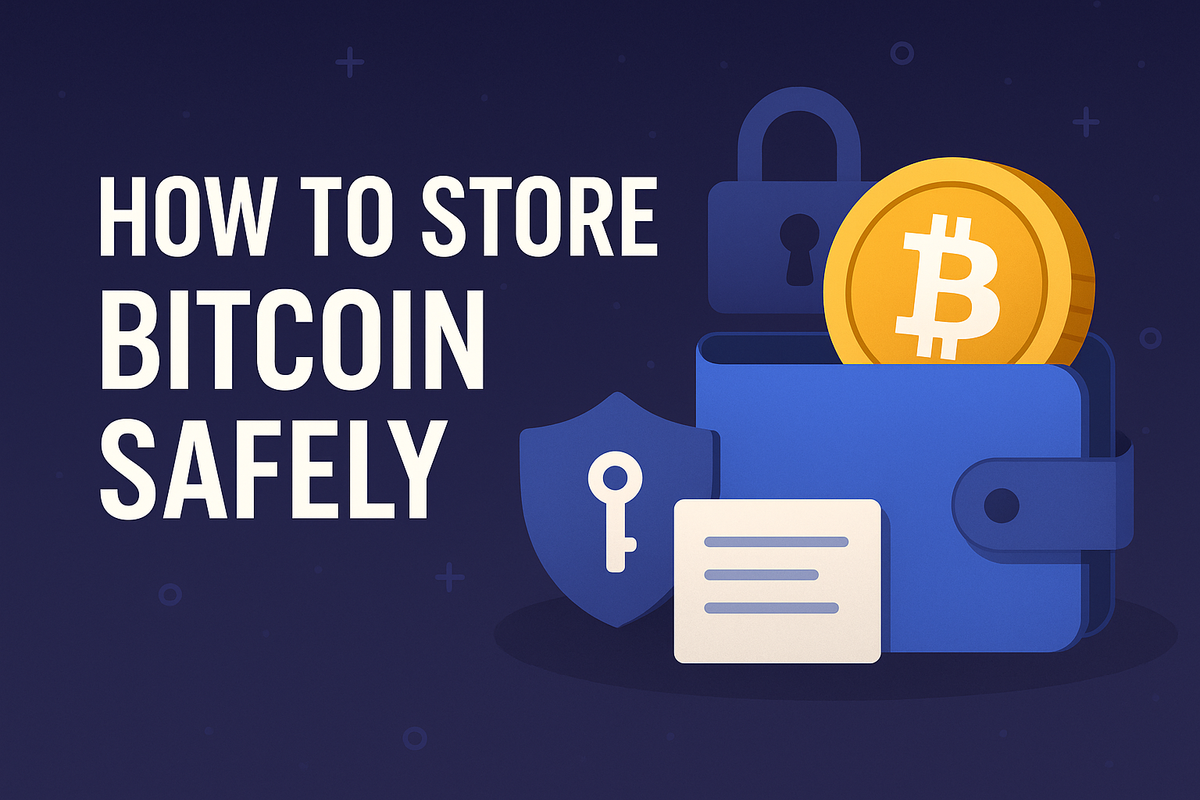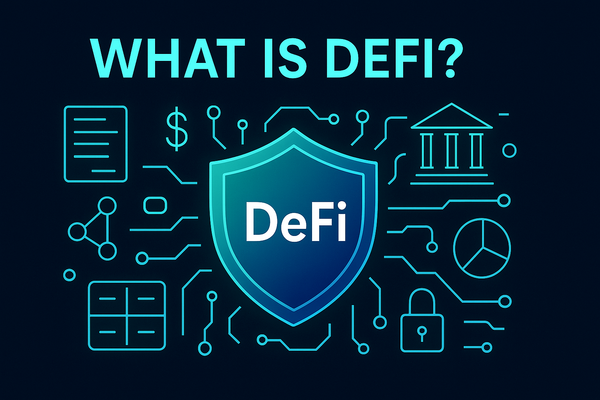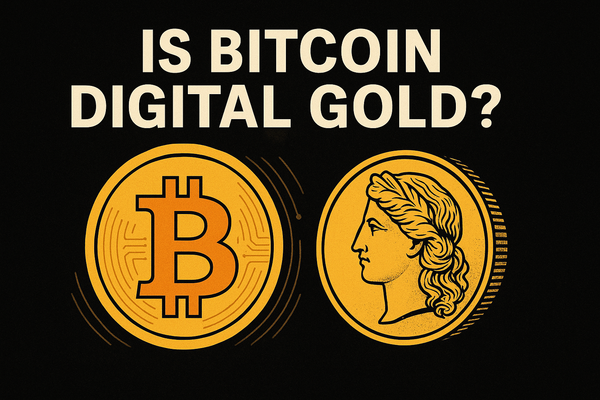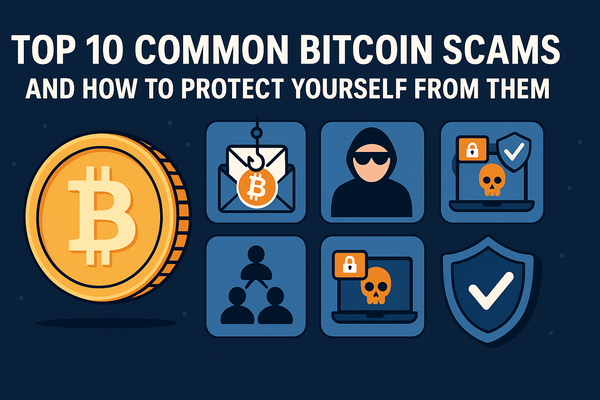How to Store Bitcoin Safely (Beginner to Advanced Guide)
Storing Bitcoin securely is essential to protect your funds from theft, loss, or hacks. This guide covers best practices, wallet types, and expert tips.

Storing Bitcoin safely isn't just about protecting digital assets—it's about securing your financial future. While Bitcoin offers significant advantages such as decentralization, transparency, and freedom from traditional financial intermediaries, it also places responsibility directly on its holders. Unlike traditional currencies protected by banks and insurance, Bitcoin's security depends entirely on the methods you choose to safeguard your private keys.
The crypto landscape is filled with cautionary tales highlighting the risks of inadequate security measures. High-profile hacks, such as the Mt. Gox incident in 2014, where approximately 850,000 Bitcoins were stolen, underline the vulnerabilities inherent in improper storage. Additionally, individual stories of lost fortunes due to forgotten passwords or misplaced seed phrases emphasize the critical importance of effective Bitcoin storage strategies.
Understanding how to safely store Bitcoin is essential for both novice investors and seasoned crypto enthusiasts. By employing the right storage techniques and adhering to proven best practices, you can significantly mitigate risks and protect your investments, ensuring peace of mind in a rapidly evolving digital economy.
Understanding Bitcoin Wallets
Before deciding how to store Bitcoin safely, it’s essential to understand what a Bitcoin wallet actually is. Contrary to the name, a wallet doesn’t store Bitcoin itself. Instead, it stores the private keys that give you access to your Bitcoin on the blockchain. Whoever controls the private keys controls the funds—making wallet security paramount.
Bitcoin wallets come in two primary categories: hot wallets and cold wallets.
- Hot wallets are connected to the internet. These include mobile apps, desktop software, and web-based platforms. They offer speed and convenience, making them ideal for daily transactions or small holdings.
- Cold wallets, on the other hand, are offline. They include hardware wallets, paper wallets, and even air-gapped computers. Because they lack internet connectivity, they’re far more resistant to hacks, phishing attacks, and malware.
Each type of wallet has its trade-offs between security and convenience. Hot wallets are more user-friendly but carry a higher risk of compromise. Cold wallets offer robust protection but require more effort to set up and use correctly.
Choosing the right type of wallet depends on your goals. Are you a trader moving funds frequently, or a long-term holder storing significant value? Understanding these wallet types lays the foundation for secure storage strategies tailored to your specific needs.
Hot Wallets: Convenience with Caution
Hot wallets are digital wallets connected to the internet. They’re popular for their ease of use, especially among beginners and active traders who need quick access to their Bitcoin. Common types include mobile wallets (like Trust Wallet or BlueWallet), desktop wallets (such as Electrum), and web wallets provided by exchanges like Coinbase or Binance.
The primary advantage of hot wallets is convenience. Transactions are fast, user interfaces are often intuitive, and access is possible from virtually anywhere. Many hot wallets also include additional features like in-app trading, multi-currency support, or integration with decentralized apps (dApps).
However, this connectivity comes at a cost—security. Hot wallets are inherently more vulnerable to online threats such as phishing, malware, SIM swapping, and exchange hacks. If your device is compromised or your login credentials are exposed, your funds could be at serious risk.
That’s why hot wallets are best suited for small, everyday balances, not long-term holdings. Think of them like the cash you carry in your pocket: useful for day-to-day spending, but not the place to store your life savings.
For improved security, choose wallets that support two-factor authentication (2FA), biometric locks, and encrypted backups. But even with these features, the golden rule remains: don’t store more in a hot wallet than you’re willing to lose.
Cold Wallets: Maximum Security
Cold wallets are offline storage solutions that offer the highest level of security for your Bitcoin. Because they’re disconnected from the internet, cold wallets are immune to most forms of hacking, malware, and phishing—making them ideal for long-term storage and large holdings.
There are several types of cold wallets:
- Hardware wallets like Ledger Nano X and Trezor Model T are small, USB-like devices that store your private keys securely. They allow transactions to be signed offline and then broadcast via a connected app, ensuring that your keys never leave the device.
- Paper wallets are physical pieces of paper containing your public and private keys, often generated offline. While they’re immune to online threats, they’re highly vulnerable to physical damage, theft, or misplacement, and require great care in handling and storage.
- Air-gapped devices are computers that have never connected to the internet. These can run wallet software for signing transactions offline, but setup is complex and generally reserved for advanced users.
Cold wallets prioritize security over convenience. You won’t be able to access your Bitcoin at a moment’s notice, but you’ll enjoy peace of mind knowing your assets are protected from most digital threats. To minimize risks, store backup seed phrases in secure, fireproof locations and consider splitting them across multiple trusted physical locations.
For serious investors or anyone holding a meaningful amount of Bitcoin, cold storage isn’t optional—it’s essential.
Best Practices for Bitcoin Storage
No matter which wallet you choose, following best practices can significantly reduce your risk of loss or theft. Security isn’t just about tools—it’s about habits and awareness.
1. Use hardware wallets for large amounts.
Cold storage solutions like Ledger or Trezor are the gold standard for long-term holding. If you’re investing more than you’d be comfortable losing, a hardware wallet is a smart baseline.
2. Always back up your seed phrase.
When setting up a wallet, you’ll receive a 12- or 24-word recovery phrase. This phrase can restore your funds if your device is lost or damaged. Write it down (don’t screenshot it), and store it in multiple secure, offline locations—ideally fireproof and waterproof.
3. Enable two-factor authentication (2FA).
For hot wallets and exchange accounts, always turn on 2FA. Prefer authenticator apps (like Google Authenticator or Authy) over SMS-based 2FA, which is vulnerable to SIM swaps.
4. Keep software updated.
Security vulnerabilities are regularly patched in wallet software and firmware. Regularly update your devices, wallets, and any apps connected to your Bitcoin.
5. Beware of phishing and scams.
Only download wallets from official sources. Bookmark important sites, double-check URLs, and never give your seed phrase to anyone—ever.
Good Bitcoin storage is proactive, not reactive. These habits can be the difference between secure ownership and irreversible loss.
Common Mistakes to Avoid
Even with the best tools, simple mistakes can put your Bitcoin at risk. Many losses aren’t caused by hacks—but by human error.
Storing large amounts on exchanges.
This is one of the biggest risks. Exchanges can be hacked or freeze withdrawals. If you don’t control the keys, you don’t truly own the coins.
Neglecting your seed phrase.
Losing your seed phrase is like losing the keys to a vault with no locksmith. People often forget where they stored it, or fail to back it up at all. That’s a one-way ticket to permanent loss.
Using untrusted wallets or websites.
Downloading wallets from unofficial sources or falling for phishing links can lead to malware installation or fake apps that steal your funds.
Poor password hygiene.
Reusing passwords, failing to use a password manager, or storing sensitive info in plaintext increases the risk of compromise.
Avoiding these common pitfalls requires vigilance. Think of Bitcoin storage like fire safety: even small oversights can be catastrophic.
Advanced Security Measures
For users with significant holdings or a long-term view, basic precautions may not be enough. Advanced techniques add extra layers of resilience.
Multisignature (multisig) wallets.
These require two or more private keys to approve a transaction. It’s an excellent way to reduce single points of failure. Popular for joint custody, company funds, or inheritance planning.
Bitcoin inheritance strategies.
Your Bitcoin dies with you—unless you plan ahead. Solutions include securely sharing access details with a trusted person, using time-locked contracts, or working with inheritance-focused services like Casa or Unchained Capital.
Air-gapped wallets.
For the extremely cautious, an air-gapped device (one that has never been online) can be used to sign transactions offline, completely isolating private keys from online threats.
Geographic redundancy.
Store backups in multiple locations—ideally across different regions. This protects against localized disasters like floods, fires, or theft.
These advanced steps may take more time and effort, but they’re worth considering if you're serious about long-term Bitcoin self-custody.
How to Store Bitcoin Safely: FAQ
The safest method is using a hardware wallet stored offline, paired with secure backups of your recovery phrase in multiple physical locations.
While convenient, storing Bitcoin on an exchange exposes you to hacking and custodial risk. It's safer to transfer funds to a personal wallet.
If you lose access to both your wallet and recovery phrase, your Bitcoin may be unrecoverable. Always back up your seed phrase securely.
Mobile wallets are convenient but more vulnerable to malware and theft. Use them for small amounts and enable 2FA where possible.
A multisignature wallet requires multiple private keys to approve transactions, reducing the risk of single-point failures or unauthorized access.





